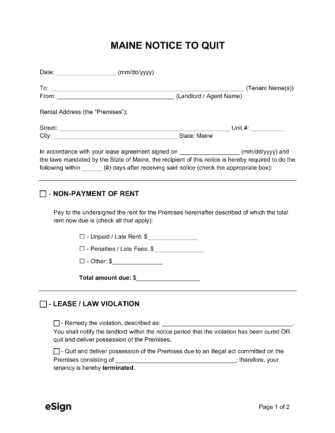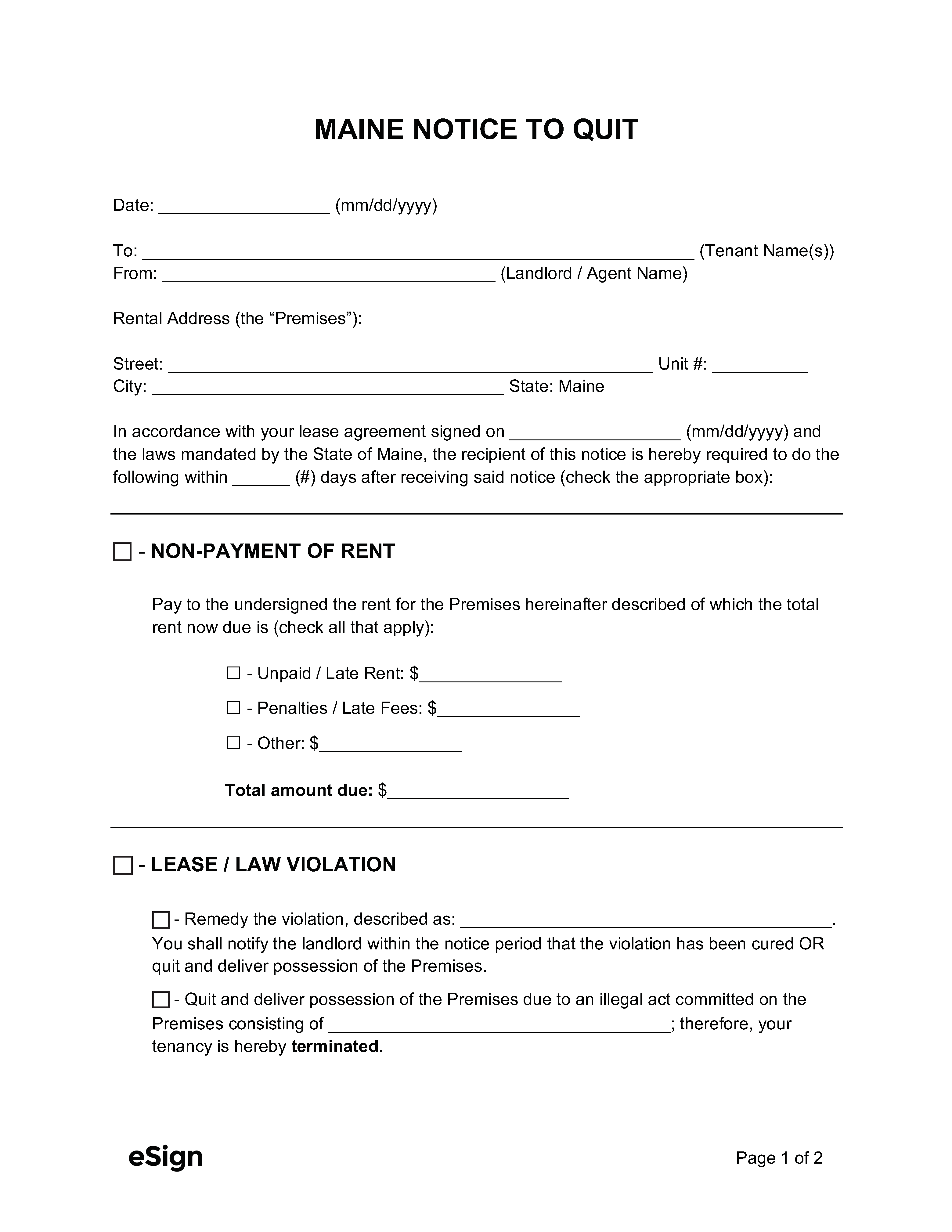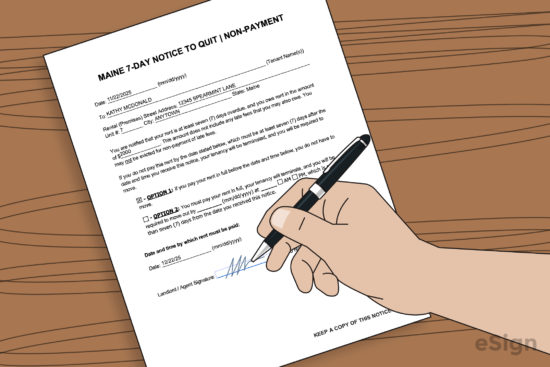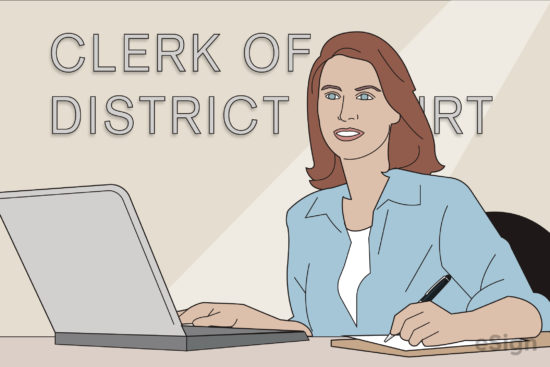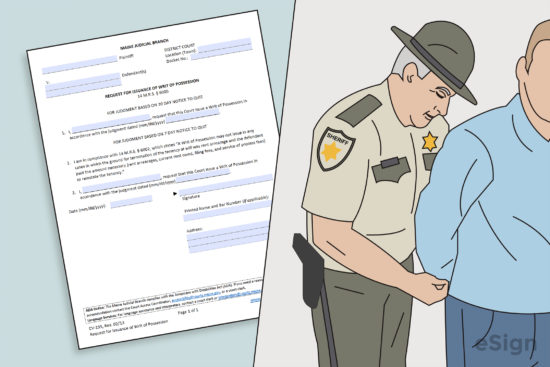Eviction Notices: By Type (3)
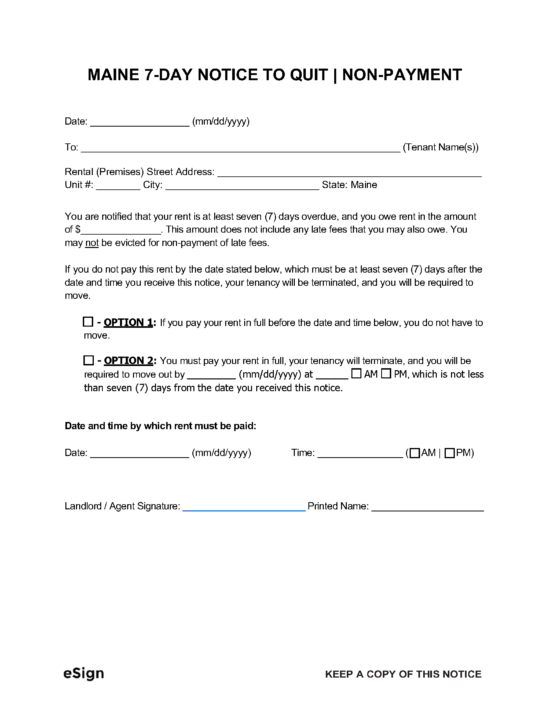 7-Day Notice to Quit | Non-Payment – This notice can be used when a tenant fails to pay rent for seven days after it is due. 7-Day Notice to Quit | Non-Payment – This notice can be used when a tenant fails to pay rent for seven days after it is due.
Download: PDF, Word (.docx), OpenDocument |
7-Day Notice to Quit | Non-Compliance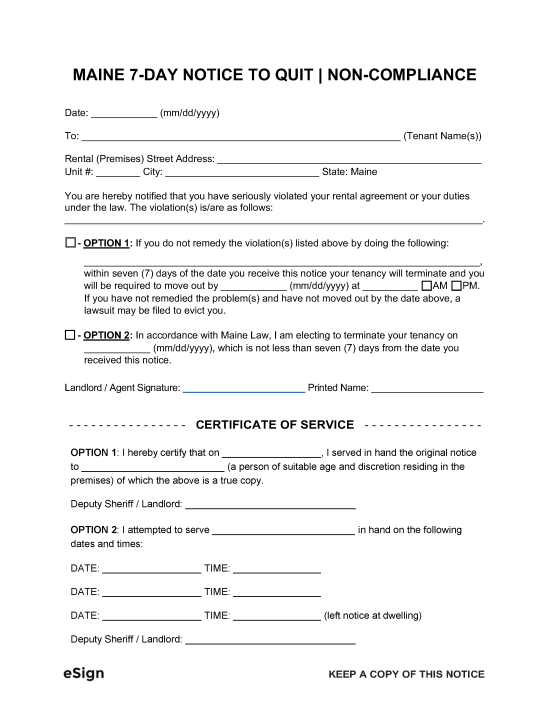 – Informs a tenant that they have breached their rental terms and must remedy the breach or vacate. – Informs a tenant that they have breached their rental terms and must remedy the breach or vacate.
Download: PDF, Word (.docx), OpenDocument
|
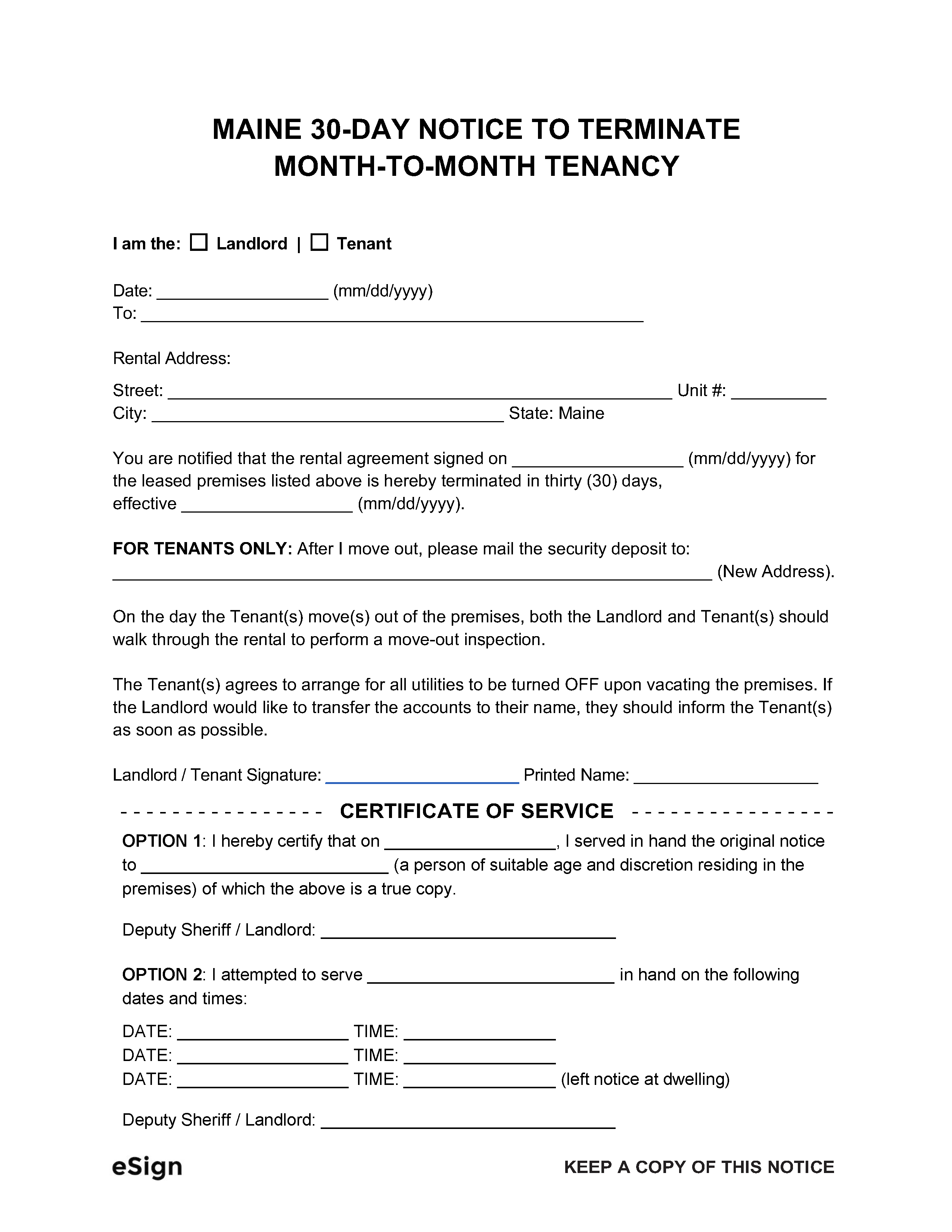 30-Day Notice to Terminate Month-to-Month Lease – Used to terminate a month-to-month tenancy by providing 30 days’ advance notice. 30-Day Notice to Terminate Month-to-Month Lease – Used to terminate a month-to-month tenancy by providing 30 days’ advance notice.
Download: PDF, Word (.docx), OpenDocument |
Notice Requirements
- Grace Period for Rent – 7 days.[1]
- Non-Payment of Rent – 7 days.[2]
- Lease Non-Compliance – 7 days.[3]
- Periodic Tenancy Termination – 30 days.[4]
If there is a written lease, statutory notice periods for non-payment and non-compliance only apply if the lease doesn’t contain language indicating a different deadline.
How to Evict a Tenant in Maine
Step 1 – Draft a Notice to Quit
Landlords can begin by drafting an eviction notice to be served on the tenant. The type of notice given to the tenant will vary depending on the nature of the eviction.
- 7-Day Notice to Quit for Non-Payment
- 7-Day Notice to Quit for Non-Compliance
- 30-Day Notice to Terminate Month-to-Month Lease
A Forcible Entry and Detainer Information Sheet and Mediation Request (CV-256) must also be completed and delivered with the notice.
Step 2 – Deliver Notice to Tenant
The landlord must make three good-faith efforts to hand-deliver the documents to the tenant.
If they are unsuccessful, the documents must be sent to the tenant by first-class mail with an additional copy left at the rental property.
Step 3 – Eviction Complaint and Summons
If the tenant doesn’t comply with the eviction notice within the designated notice period, the landlord can proceed by drafting a Complaint for Forcible Entry and Detainer (CV-007) and obtaining a Forcible Entry and Detainer Summons (CV-034) for each tenant being evicted.
The Summons is purchased from the local Clerk of the District Court, who will also schedule a hearing date for the case.
Step 4 – Serve Summons on Tenant
The landlord must arrange to have the sheriff’s department serve the tenant with the Complaint and Summons forms at least 14 days before the hearing date (sheriff will provide return of service).
At least three business days before the eviction hearing, the landlord must file the proof of service, Complaint, and Summons with the court. If the sheriff was unable to serve the complaint and summons in person after three attempts, an Affidavit of Service (CV-204) must also be completed and filed.
Step 5 – Attend Hearing
Both parties must attend the court hearing to defend their cases. If the tenant fails to appear, a default judgment may be entered in the landlord’s favor.
The court will review the evidence presented by both parties before issuing a judgment. If the landlord prevails, the tenant will be ordered to vacate the premises within a specific number of days.
Step 6 – Remove Tenant
If the tenant doesn’t vacate the property or appeal the court’s decision before the move-out date, the landlord must file a Request for Issuance of Writ of Possession (CV-195) to request the sheriff’s department to remove the tenant from the property.
Court Forms + Resources
Forms
- Affidavit of Service (CV-204)
- Signed By: Landlord and Clerk or Notary Public
- Complaint for Forcible Entry and Detainer (CV-007)
- Signed By: Landlord
- Forcible Entry and Detainer (Eviction) Information Sheet and Mediation Request (CV-256)
- Signed By: Landlord or Tenant
- Forcible Entry and Detainer Summons (CV-034)
- Signed By: N/A
- Notice of Appeal and Affidavit (CV-206)
- Signed By: Tenant and Clerk/Notary Public
Resources
